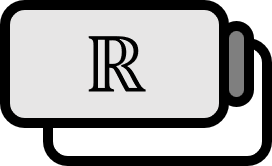If Differentiable, Then Continuous
Theorem1
Let’s say $f : [a,b] \to \mathbb{R}$. If $f$ is differentiable at $p \in [a,b]$, then $f$ is continuous at $p$.
Explanation
Note that the converse ‘if it is continuous, it is differentiable’ does not hold.
In the past, there was a pun called Simple Integration (simply put, if it’s differentiable, then it’s continuous) among older students, but I wonder if this pun has become unused as current students might not know who Simple Integration is.
Proof
The equivalence condition for $f$ to be continuous at $p$ is as follows:
$$ \lim \limits_{x \to p}f(x)=f(p) $$
Therefore, it suffices to show that $\lim \limits_{x \to p} \left( f(x) - f(p) \right) = 0$. Assume that $f$ is differentiable at $p$. Then the following holds:
$$ \begin{align*} \lim \limits_{x \to p} \left( f(x)-f(p) \right) &= \lim \limits_{x \to p}\left[ \frac{ f(x)-f(p) } {x-p}(x-p)\right] \\ &= \lim \limits_{x \to p} \frac{ f(x)-f(p) }{x-p} \cdot \lim \limits_{x \to p} (x-p) \\ &= f^{\prime}(p)\cdot 0 \\ &=0 \end{align*} $$
The second equality holds due to the properties of the limit of a function.
■
Walter Rudin, Principles of Mathematical Analysis (3rd Edition, 1976), p104 ↩︎
